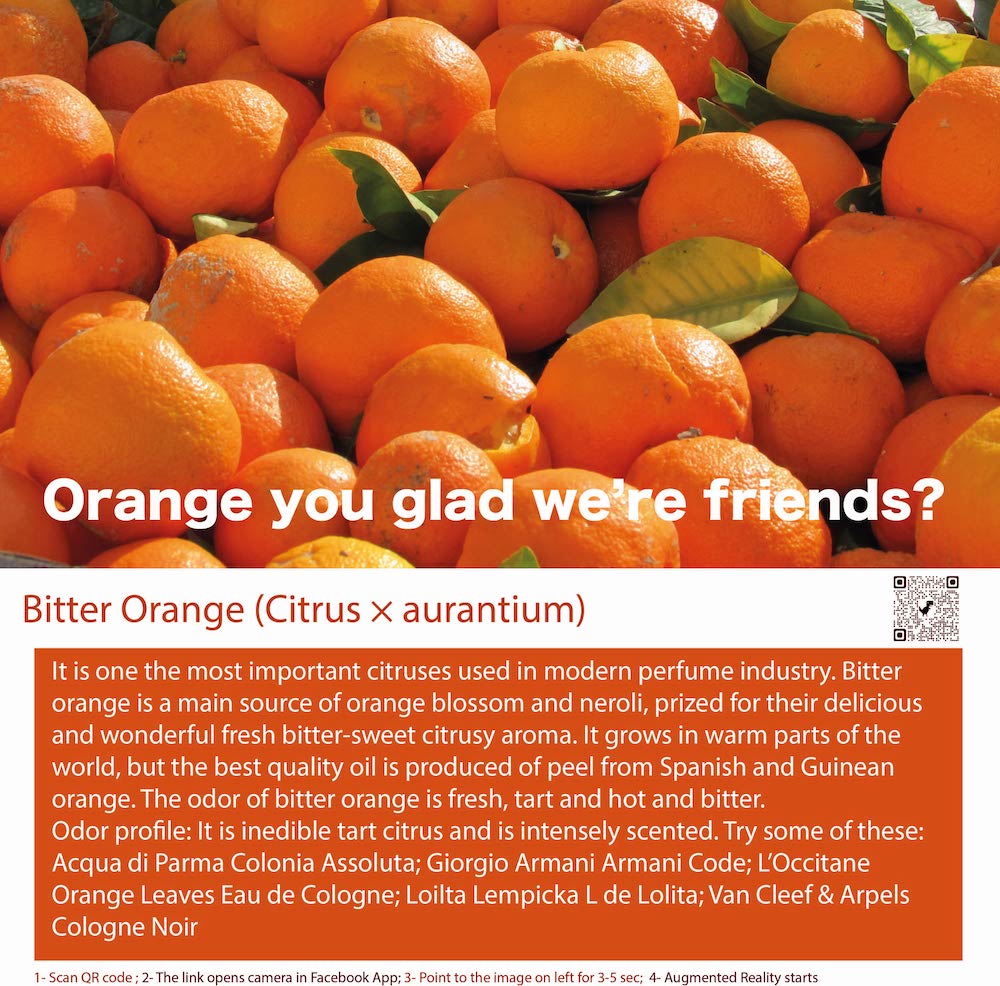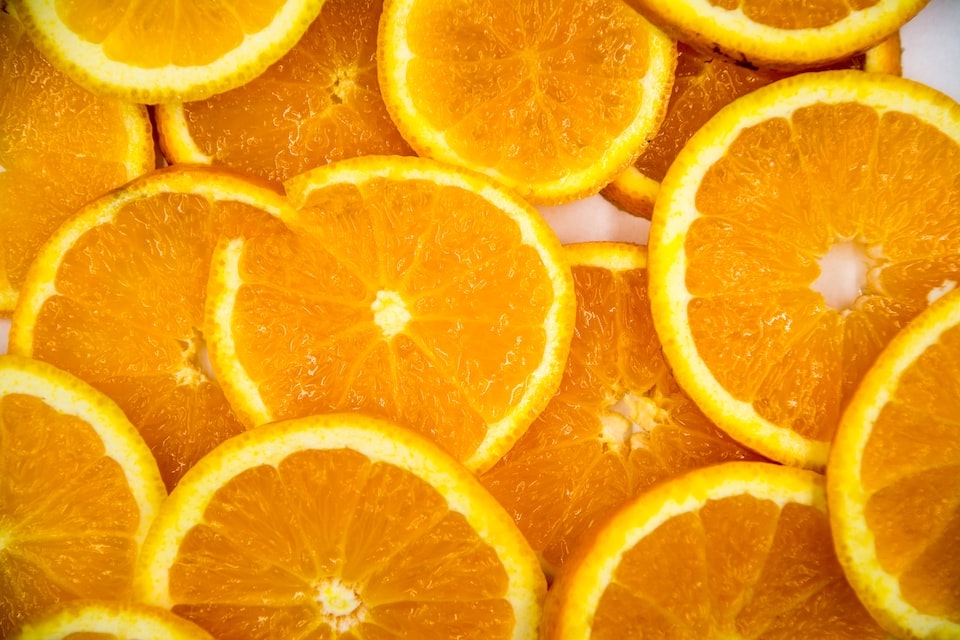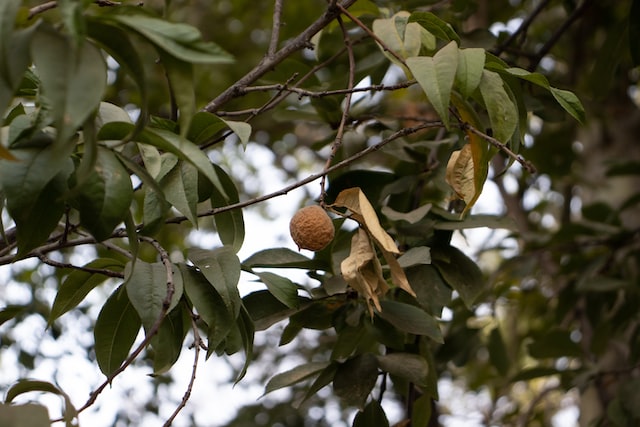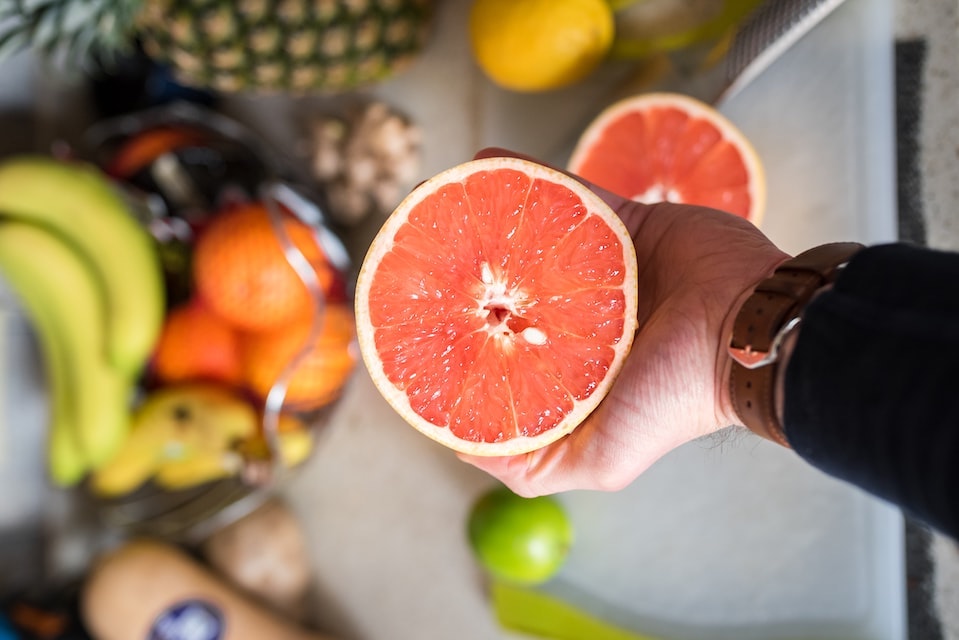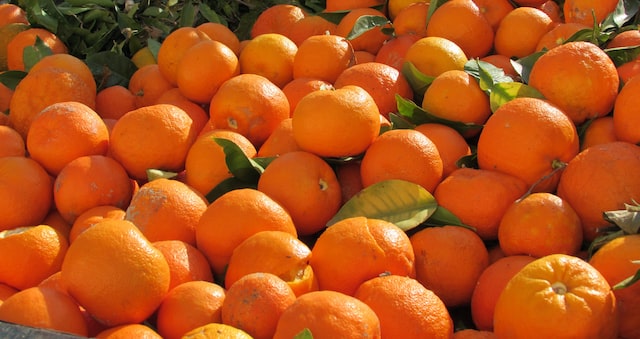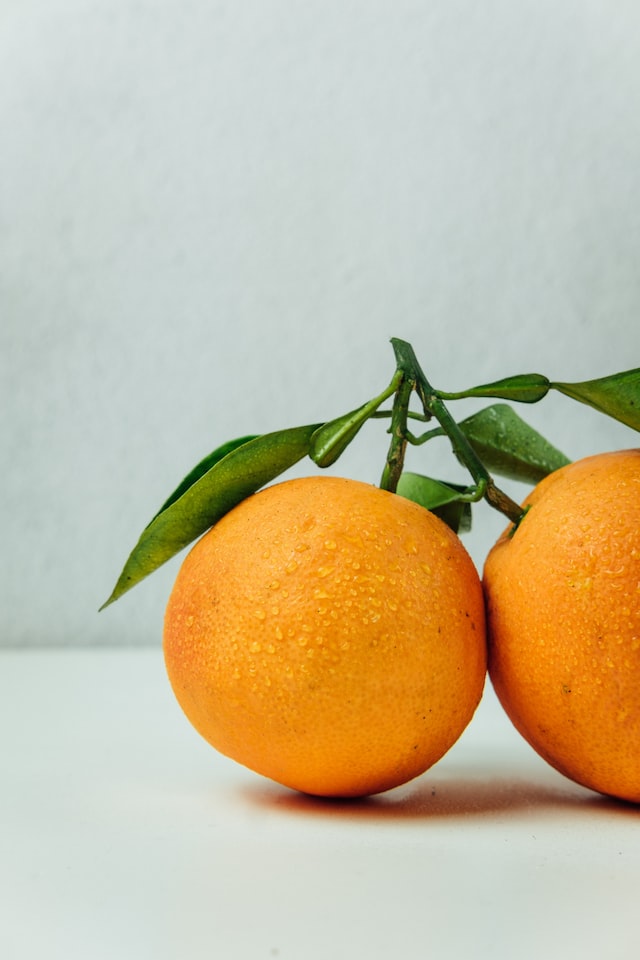Experience Bitter Orange Fragrance at Scentopia Singapore
The Allure of Bitter Orange: Perfumes, Fragrance, Therapeutic Oils, Culinary Delights, Medicinal Applications, Historical Significance, and Fun Crazy Facts
Bitter orange, scientifically known as Citrus aurantium, is a captivating fruit that has found its way into various aspects of human life. From its invigorating fragrance in perfumes to its therapeutic oils, delectable culinary uses, and medicinal applications, bitter orange has left a significant mark on our history and culture. In this comprehensive article, we will explore the multifaceted world of bitter orange and its fascinating role in perfumes, therapeutic oils, food, traditional medicine, its historical significance, and some fun and crazy facts that make it a truly unique and remarkable fruit.
I. Introduction to Bitter Orange:
Bitter orange is a member of the citrus family and is believed to be native to Southeast Asia. It is a small to medium-sized tree with glossy green leaves, white blossoms, and bright orange fruits. The fruit of the bitter orange tree is smaller and more bitter than the sweet orange (Citrus sinensis), which is commonly used for juice and eating.
II. Fragrance in Perfumes:
The intoxicating and uplifting fragrance of bitter orange has made it a popular choice in the world of perfumery. Bitter orange oil, extracted from the peel of the fruit through a process of cold pressing, has a fresh, citrusy, and slightly bitter aroma. It is often used as a top note in perfumes to provide a burst of energy and brightness to the fragrance.
Bitter orange oil blends harmoniously with a wide range of other essential oils, such as lavender, rosemary, and neroli, creating captivating and complex scents. Its invigorating scent is often used in aromatherapy to uplift the mood and reduce stress and anxiety.
III. Therapeutic Oils:
In addition to its role in perfumes, bitter orange oil also holds therapeutic properties that make it a valuable addition to aromatherapy. The oil is known for its calming and relaxing effects, which can help soothe the mind and promote a sense of tranquility. Its anti-inflammatory and antispasmodic properties also make it useful in massage oils to ease muscle tension and pain.
Bitter orange oil is often used in natural remedies to improve digestion and relieve digestive issues. It can be added to massage blends or used in a diffuser to help alleviate feelings of nausea or indigestion.
IV. Culinary Delights:
Despite its name, bitter orange has culinary uses that extend beyond its bitterness. The zest and juice of the fruit are used to add a tangy and citrusy flavor to various dishes, sauces, and desserts. In some cultures, the fruit is candied and used as a sweet garnish.
Bitter orange marmalade, made from the fruit's peel and juice, is a classic spread that has a distinct bittersweet taste, which pairs well with toast and pastries. Additionally, the dried peel of bitter orange is often used as a flavorful ingredient in spice blends and teas.
V. Medicinal Uses:
Bitter orange has a long history of use in traditional medicine. In Chinese medicine, the dried peel of the fruit, known as "Zhi Ke," is used to promote digestion and relieve symptoms of indigestion and bloating.
In herbal medicine, bitter orange extract is believed to have a stimulating effect on the digestive system and metabolism, which has led to its use as a natural weight loss supplement. However, it's important to note that the safety and effectiveness of bitter orange for weight loss are still a subject of debate, and it should be used with caution.
VI. Historical Significance:
The history of bitter orange dates back centuries and is intertwined with various cultures and civilizations. The fruit is believed to have been introduced to Europe by Arab traders during the Middle Ages. It quickly gained popularity in European gardens and culinary traditions, leading to its widespread cultivation across the continent.
Bitter orange has also played a significant role in traditional Chinese medicine and Ayurveda, where it is believed to have cooling and calming properties. It has been used to balance the body's energies and promote overall well-being.
VII. Fun Crazy Facts:
- Bitter orange is believed to be the result of a natural hybrid between the pomelo (Citrus maxima) and the mandarin (Citrus reticulata).
- In the perfume industry, the oil of bitter orange is often referred to as "neroli petitgrain" when extracted from the blossoms and leaves of the tree.
- Bitter orange peel is used to flavor the popular liqueur "Curaçao."
- Bitter orange oil has been used traditionally as an insect repellent.
Bitter orange is a captivating fruit with a multifaceted character that has intrigued and inspired humans for generations. Its delightful fragrance in perfumes, therapeutic properties in aromatherapy, culinary delights, traditional medicinal uses, historical significance, and fun and crazy facts make it a truly unique and cherished botanical treasure. As we continue to explore and appreciate the wonders of nature, bitter orange stands as a shining example of the beauty and versatility that the natural world has to offer.
To experience augmented reality, please open the Facebook-app using QR code and point to the image below
Zesty and Refreshing: Citrus Perfume with a Twist
Bitter Orange, also known as Seville Orange, Sour Orange, or Bigarade Orange, is a type of citrus fruit that is known for its sour and bitter taste. It is a hybrid of the sweet orange and the pomelo, and is believed to have originated in Southeast Asia. The fruit is typically larger and less round than a sweet orange, and has a thick and bumpy rind.
The fruit is not commonly eaten raw as it is very sour and bitter, but it is widely used in cooking and as a source of flavoring. The peel, particularly the outermost zest, is used to make marmalade and cand cand peel, as well as a traditional liqueur called Curaçao. The juice of the bitter orange is often used in cooking to add a tangy, citrus flavor to dishes, and is a common ingredient in marinades, sauces, and dressings.
In traditional medicine, the bitter orange has been used to help with digestion, to lower fever and as a mild laxative.
Bitter orange is also used as a natural remedy to help with weight loss, by increasing metabolism and suppressing appetite. However, it has been linked to some negative side effects such as high blood pressure, fainting, and heart palpitations, so it's important to be careful when using supplements or extracts that contain bitter orange. The use of bitter orange supplements is not recommended for everyone and it is important to consult with a healthcare professional before using.
Bitter Orange is a versatile and flavorful fruit, that despite its sour and bitter taste, has been widely used in cooking and traditional medicine, but it should be used with caution due to potential side effects.
The fruit is not commonly eaten raw as it is very sour and bitter, but it is widely used in cooking and as a source of flavoring. The peel, particularly the outermost zest, is used to make marmalade and cand cand peel, as well as a traditional liqueur called Curaçao. The juice of the bitter orange is often used in cooking to add a tangy, citrus flavor to dishes, and is a common ingredient in marinades, sauces, and dressings.
In traditional medicine, the bitter orange has been used to help with digestion, to lower fever and as a mild laxative.
Bitter orange is also used as a natural remedy to help with weight loss, by increasing metabolism and suppressing appetite. However, it has been linked to some negative side effects such as high blood pressure, fainting, and heart palpitations, so it's important to be careful when using supplements or extracts that contain bitter orange. The use of bitter orange supplements is not recommended for everyone and it is important to consult with a healthcare professional before using.
Bitter Orange is a versatile and flavorful fruit, that despite its sour and bitter taste, has been widely used in cooking and traditional medicine, but it should be used with caution due to potential side effects.
Uplift Your Mood with Citrus Aromatherapy
In traditional medicine, bitter orange (Citrus aurantium) has been used for a variety of purposes. Some of the traditional uses of bitter orange include:
- Digestive aid: Bitter orange has been used to help stimulate appetite, improve digestion, and relieve constipation.
- Fever reducer: Bitter orange has been used as a natural remedy to help lower fever and reduce inflammation.
- Weight loss: Bitter orange has been used as a natural appetite suppressant and metabolism booster, to help with weight loss.
- Cardiovascular health: Bitter orange has been used to help lower blood pressure, reduce cholesterol levels and improve circulation.
- Anxiety and stress: Bitter orange has been used to help reduce anxiety, promote relaxation and alleviate feelings of tension.
- Respiratory conditions: Bitter orange has been used to help clear congestion and ease breathing.
Discover the Power of Bitter Orange Essential Oil
Bitter orange, also known as Seville orange, has been used in traditional medicine for many years and has been associated with many myths and facts. Here are a few examples:
Myth: Bitter orange is a safe and effective weight loss supplement.
Fact: While bitter orange has been traditionally used as a natural appetite suppressant and metabolism booster, there is limited scientific evidence to support these uses. Additionally, bitter orange can interact with other medications, and has been linked to negative side effects such as high blood pressure, fainting, and heart palpitations, so it's important to be careful when using supplements or extracts that contain bitter orange.
Myth: Bitter orange can help to reduce anxiety and stress.
Fact: While bitter orange has been traditionally used to help reduce anxiety and promote relaxation, there is limited scientific evidence to support these uses. More research is needed to understand the effects of bitter orange on anxiety and stress.
Myth: Bitter orange is a safe and natural remedy for fever.
Fact: Bitter orange has been traditionally used to help lower fever, but there is limited scientific evidence to support this use. Additionally, bitter orange can interact with other medications, and has been linked to negative side effects such as high blood pressure, fainting, and heart palpitations, so it's important to be careful when using supplements or extracts that contain bitter orange.
Fact: Bitter orange is rich in flavonoids and polyphenols, which have antioxidant and anti-inflammatory properties. Studies have found that these compounds may have potential benefits for cardiovascular health, such as reducing cholesterol levels and blood pressure.
It's important to note that while traditional medicine has long associated bitter orange with various health benefits, much of these uses lack scientific evidence, and it's important to be cautious when using bitter orange or any supplements that contains bitter orange extract. It's always best to consult with a qualified healthcare professional before using bitter orange for medicinal purposes.
Myth: Bitter orange is a safe and effective weight loss supplement.
Fact: While bitter orange has been traditionally used as a natural appetite suppressant and metabolism booster, there is limited scientific evidence to support these uses. Additionally, bitter orange can interact with other medications, and has been linked to negative side effects such as high blood pressure, fainting, and heart palpitations, so it's important to be careful when using supplements or extracts that contain bitter orange.
Myth: Bitter orange can help to reduce anxiety and stress.
Fact: While bitter orange has been traditionally used to help reduce anxiety and promote relaxation, there is limited scientific evidence to support these uses. More research is needed to understand the effects of bitter orange on anxiety and stress.
Myth: Bitter orange is a safe and natural remedy for fever.
Fact: Bitter orange has been traditionally used to help lower fever, but there is limited scientific evidence to support this use. Additionally, bitter orange can interact with other medications, and has been linked to negative side effects such as high blood pressure, fainting, and heart palpitations, so it's important to be careful when using supplements or extracts that contain bitter orange.
Fact: Bitter orange is rich in flavonoids and polyphenols, which have antioxidant and anti-inflammatory properties. Studies have found that these compounds may have potential benefits for cardiovascular health, such as reducing cholesterol levels and blood pressure.
It's important to note that while traditional medicine has long associated bitter orange with various health benefits, much of these uses lack scientific evidence, and it's important to be cautious when using bitter orange or any supplements that contains bitter orange extract. It's always best to consult with a qualified healthcare professional before using bitter orange for medicinal purposes.
Energizing Citrus Notes: Your New Signature Scent
Bitter orange, also known as Seville orange, is a hybrid of the sweet orange (Citrus sinensis) and the pomelo (Citrus maxima), and is believed to have originated in Southeast Asia. The fruit is typically larger and less round than a sweet orange, and has a thick and bumpy rind.
The bitter orange was likely first cultivated in China and Southeast Asia and it's believed that traders and travelers brought the fruit to the Mediterranean region, where it became known as the "Seville orange." It was grown extensively in the Mediterranean region and became an important crop for the production of marmalade and cand cand peel, as well as a traditional liqueur called Curaçao.
In traditional medicine, bitter orange has been used for centuries in many cultures, particularly in Asia and the Mediterranean region. The fruit and its extracts were used to help with digestion, to lower fever and as a mild laxative. Bitter orange was also used as a natural remedy to help with weight loss, by increasing metabolism and suppressing appetite.
It was not until the 20th century that bitter orange began to be studied for its potential medicinal properties. In the recent years, bitter orange has gained popularity as a natural weight loss supplement, however, it has been linked to some negative side effects such as high blood pressure, fainting, and heart palpitations, so it's important to be careful when using supplements or extracts that contain bitter orange.
In summary, bitter orange has a long history of cultivation, culinary and medicinal use, particularly in the Mediterranean region and Asia. It's believed to have originated in Southeast Asia and was brought to the Mediterranean by traders and travelers. Despite its traditional use, more research is needed to understand the effects of bitter orange on human health and its safety, so it's important to be careful when using supplements or extracts that contain bitter orange.
The bitter orange was likely first cultivated in China and Southeast Asia and it's believed that traders and travelers brought the fruit to the Mediterranean region, where it became known as the "Seville orange." It was grown extensively in the Mediterranean region and became an important crop for the production of marmalade and cand cand peel, as well as a traditional liqueur called Curaçao.
In traditional medicine, bitter orange has been used for centuries in many cultures, particularly in Asia and the Mediterranean region. The fruit and its extracts were used to help with digestion, to lower fever and as a mild laxative. Bitter orange was also used as a natural remedy to help with weight loss, by increasing metabolism and suppressing appetite.
It was not until the 20th century that bitter orange began to be studied for its potential medicinal properties. In the recent years, bitter orange has gained popularity as a natural weight loss supplement, however, it has been linked to some negative side effects such as high blood pressure, fainting, and heart palpitations, so it's important to be careful when using supplements or extracts that contain bitter orange.
In summary, bitter orange has a long history of cultivation, culinary and medicinal use, particularly in the Mediterranean region and Asia. It's believed to have originated in Southeast Asia and was brought to the Mediterranean by traders and travelers. Despite its traditional use, more research is needed to understand the effects of bitter orange on human health and its safety, so it's important to be careful when using supplements or extracts that contain bitter orange.
Refreshing Notes: Citrus Top Note Scent
Bitter orange, also known as Seville orange, is a note in perfumery. It is used in some perfumes to give a tangy, citrusy, and slightly bitter aroma. The scent of bitter orange is typically extracted from the peel of the fruit and is often combined with other citrus and floral notes to create a unique fragrance.
Some perfumes that are known to feature bitter orange as a note include:
Bitter Orange is not a typical note, and perfumes that feature it are not that common, but bitter orange can be found in perfumes that aim to create a fresh, tangy and citrusy fragrance.
Some perfumes that are known to feature bitter orange as a note include:
- "Eau d'Orange Verte" by Hermès, which is said to be a fresh and citrusy scent with notes of bitter orange, neroli, and lemon.
- "Citron Citron" by Jo Malone, which is said to be a fresh and citrusy scent with notes of bitter orange, lemon, and grapefruit.
- "Eau de Pamplemousse Rose" by Hermès, which is said to be a fresh and citrusy scent with notes of bitter orange, pink grapefruit, and rose.
Bitter Orange is not a typical note, and perfumes that feature it are not that common, but bitter orange can be found in perfumes that aim to create a fresh, tangy and citrusy fragrance.
Join Scentopia, Sentosa's latest tourist attraction wonderful orchid scent crafting, fragrance tour, bridal shower or corporate team building which includes perfume making onsite and offsite, beach activities and more. We also serve primary school learning journey, secondary students and pupil on industrial excursions. Know more about our orchids perfume bar or therapeutic orchid scents and other wellness aromas. Conatct Perfume workshop or book a scent crafting session here.

